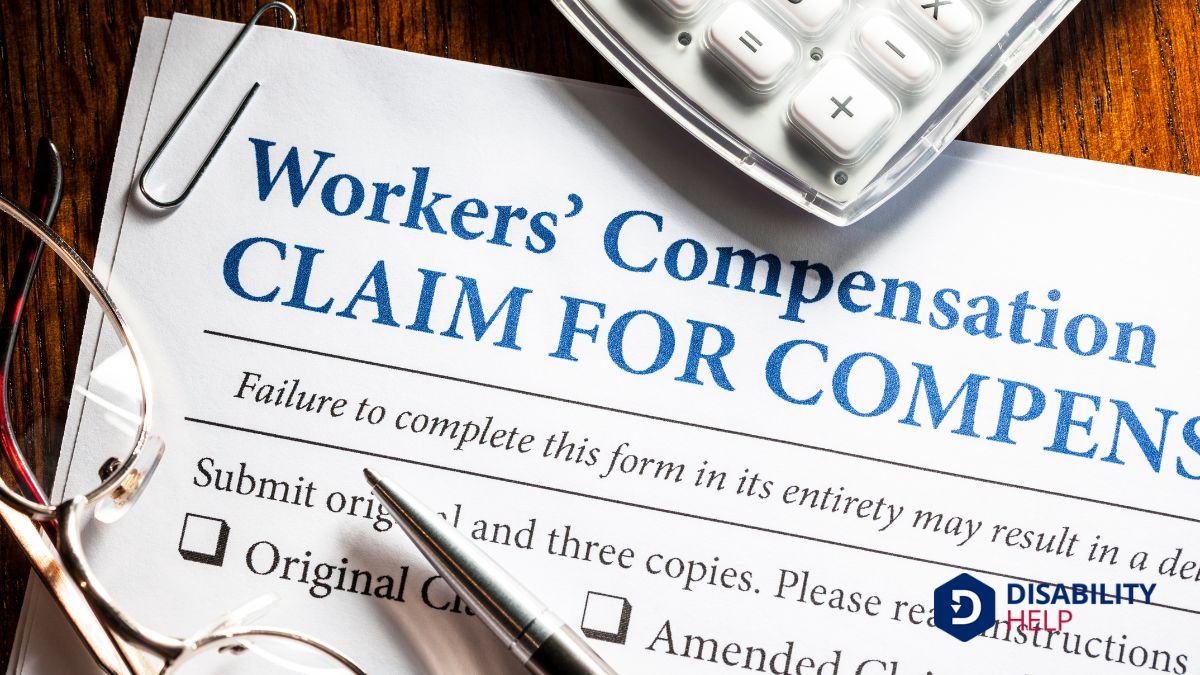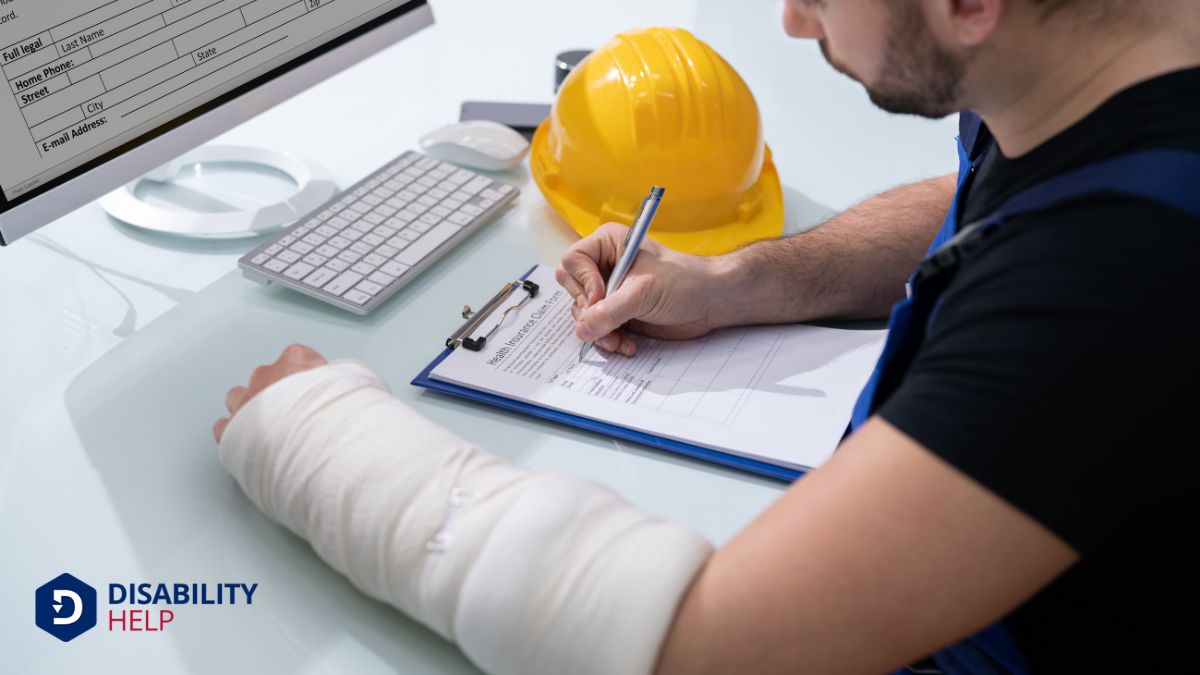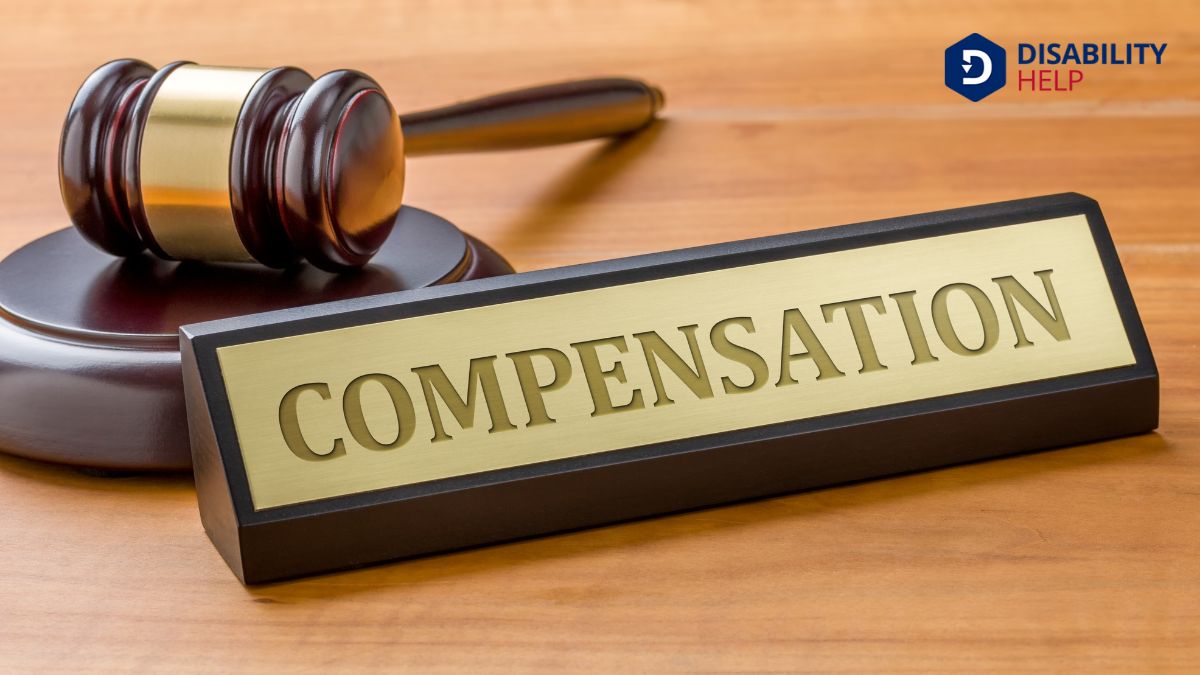When it comes to workers' compensation, grasping our eligibility can make all the difference in a smooth claims process. We need to take into account our job roles, the specifics of our injuries, and the laws in our states. It's crucial to confirm that we meet the coverage criteria, report injuries on time, and recognize any exemptions that might apply. By being informed, we can ensure we receive the benefits we're entitled to. But how do we navigate these complexities effectively and avoid common pitfalls? Let's delve into the key factors that can influence our eligibility and claims success.
Key Takeaways
- Confirm your job position is covered under state workers' compensation laws and note any exceptions.
- Report your injury or illness to your employer within the required 30-day timeframe.
- Ensure your injury or illness is directly related to your job duties and occurred while performing work tasks.
- Verify that you meet state-specific eligibility criteria, including any rules about pre-existing conditions.
- Understand that independent contractors, volunteers, and certain worker categories may have different coverage rules.
What Is Workers' Compensation

Workers' compensation is always a critical safety net for employees who get injured or fall ill due to their jobs. It's a form of insurance that provides workers with essential benefits, such as coverage for medical expenses, lost wages, and rehabilitationThe process of helping individuals with disabilities achieve and maintain their optimal physical, se... costs. When we get injured at work, these benefits guarantee we're not left struggling financially while we recover.
Our employers are legally required to carry workers' compensation insurance. This mandate helps protect us and promotes a safer working environment. By knowing that our medical bills and a portion of our lost wages will be covered, we can focus on healing rather than stressing over finances.
It's important to remember that workers' compensation laws can vary from state to state. Each state has specific eligibility criteria and benefits, so we need to be aware of the regulations that apply to us.
The primary purpose of workers' compensation is straightforward: it aims to provide financial and medical support to employees who've been injured on the job. This support not only aids our recovery but also encourages employers to maintain safer workplaces. Understanding these aspects helps us better navigate any unfortunate incidents at work.
Employee Eligibility Criteria
Now that we comprehend what workers' compensation is, let's look at who qualifies for these benefits. Generally, employees are eligible, but independent contractors and most volunteers aren't covered.
It's also important to report any work-related injuryAn injury that occurs in the course of employment, potentially leading to temporary or permanent dis... promptly and make sure the injury occurred during work activities to meet the eligibility criteria.
Covered Job Positions
Determining who's eligible for workers' compensation depends on whether the individual is classified as an employee. Employees are typically covered, but independent contractors usually are not. This differentiation is important because independent contractors, given their non-employee status, don't qualify for workers' compensation coverage. Disputes regarding worker misclassification can result in legal challenges, so it's essential to know where we stand.
Conversely, volunteers are generally not included in workers' compensation. Nevertheless, there are exceptions for specific roles, such as volunteer firefighters. If you're volunteering, verify your specific role's coverage.
For workers' compensation benefits to be applicable, injuries must occur in the workplace or during work-related tasks. This implies that if we sustain injuries on the job or while carrying out work responsibilities, we're probably eligible. Pre-existing conditions can add complexity, as eligibility may differ based on state laws and the particulars of the scenario.
Grasping these criteria helps us determine if we're covered and guarantees we take the appropriate steps if we encounter work-related injuries. Always verify your classification and coverage to safeguard your rights.
Reporting Injury Deadlines
Understanding the deadlines for reporting injuries is vital for maintaining our eligibility for workers' compensation benefits. Injured employees must report work-related injuries within 30 days to be eligible for workers' compensation. This timeline guarantees that our claims are processed efficiently and that we receive the support we need promptly.
State deadlines play a significant role in determining our coverage eligibility. Each state has specific guidelines, and meeting these deadlines is non-negotiable.
For instance, undocumented workers in states like Texas, California, and Florida are covered if they comply with injury reporting requirements. It's noteworthy that special rules may apply to certain employees, such as domestic and seasonal workers, regarding reporting injury deadlines.
We should be proactive in understanding the nuances of our state's policies. Timely reporting not only safeguards our eligibility for workers' compensation but also ensures that our medical needs and financial support are addressed without unnecessary delays.
By adhering to the reporting injury deadlines, we protect our rights and the benefits we're entitled to.
Let's make sure we're familiar with our state's deadlines and report any work-related injuries promptly to remain eligible for workers' compensation.
Work-Related Injury Definition
While reporting injury deadlines is essential to maintaining our eligibility for workers' compensation, knowing what constitutes a work-related injury is equally significant. To qualify for workers' compensation, the injury or illness must happen while performing work duties or on the job. This means the incident should occur during our work hours and within the scope of our job responsibilities.
Here are three vital points to keep in mind:
- Eligibility Criteria: Independent contractors generally aren't qualified for workers' compensation benefits, and volunteer workers are usually not covered, except for some roles like volunteer firefighters.
- Exclusions: Injuries resulting from intentional self-harm or fights are typically not included under workers' compensation.
- Notification: Promptly informing your employer after a work-related injury is essential to initiate the workers' compensation claim process.
Understanding these criteria ensures we're well-informed about our rights and responsibilities. If we experience a work-related injury, we need to act swiftly and notify our employer to secure the benefits we deserve. Staying informed helps us navigate the complexities of workers' compensation effectively, guaranteeing we receive the support we need during recovery.
Employer Coverage Requirements
Now, let's examine the requirements for employers regarding workers' compensation insurance. Each state has specific mandates and exceptions, which can depend on factors like the number of employees and industry type. It's essential for employers to grasp these rules to avoid penalties and guarantee they're providing necessary protections for their workers.
Employer Insurance Mandates
Employers are required by law in most states to carry workers' compensation insurance, guaranteeing that employees are protected in case of work-related injuries. This mandate is essential for providing financial support and required medical benefits to those injured on the job. State law dictates the specific worker's compensation coverage requirements, making it vital for any employer within a state to understand and comply with these regulations.
Failure to provide the necessary insurance can lead to severe penalties, fines, and even legal consequences. To help clarify what's expected, here are three key points:
- Universal Requirement: Most states mandate that all employers, regardless of size, must obtain workers' compensation insurance. This ensures that every worker has protection.
- State-Specific Regulations: Each state has its own rules regarding the benefits and coverage levels. Employers must familiarize themselves with these state laws to remain compliant.
- Consequences of Non-Compliance: Not carrying the required insurance can result in hefty fines and lawsuits, putting the business at significant risk.
Staying informed and compliant with workers' compensation insurance mandates not only protects employees but also safeguards the business from legal and financial troubles.
Coverage Exceptions Explained
Understanding employer insurance mandates is vital, but it's equally important to recognize the coverage exceptions within workers' compensation. Not everyone is covered by workers' comp benefits.
For instance, independent contractors are generally not eligible for workers' compensation coverage. This means if you're classified as an independent contractor, you mightn't receive benefits if you suffer an Injury or Occupational Disease while on the job.
Volunteers also fall into a grey area. Typically, they aren't covered, although there are some exceptions for specific roles, such as certain volunteer firefighters. So, if you're volunteering, it's important to verify whether your role makes you eligible for workers' compensation.
It's also noteworthy to mention that injuries must occur at the workplace or during work-related activities to be eligible for workers' compensation. Employers have a legal obligation to provide a safe work environment and carry appropriate workers' compensation insurance. However, state laws govern workers' compensation, leading to variations in coverage exceptions and eligibility criteria.
Reporting and Filing Deadlines

When it comes to workers' compensation, reporting and filing deadlines are critical and can't be overlooked. Meeting these deadlines guarantees we remain eligible for workers' compensation benefits. Typically, we must report work-related injuries promptly, often within 30 days. Failing to do so can jeopardize our claim. Additionally, each state has its own specific deadlines for filing a claim, which means understanding our state's regulations is essential.
To help navigate these important timelines, let's break it down:
- Reporting Deadlines: Report your injury to your employer as soon as possible, usually within 30 days. Prompt reporting helps ensure your injury is documented, and you're eligible for benefits.
- Filing Deadlines: After reporting the injury, we need to file a workers' compensation claim within the timeframe specified by state law. Missing this filing deadline can lead to a denial of benefits.
- Employer's Responsibility: Our employers also have deadlines to meet. They must submit injury reports to their workers' compensation insurance carrier promptly, which helps in processing our claims smoothly.
Injury and Illness Criteria
To be eligible for workers' compensation benefits, our injury or illness has to be directly linked to our job. This means the incident must occur while we're performing work duties. If our injury is self-inflicted or happens while we're off the clock, we won't qualify for compensation. It's important to grasp that even pre-existing conditions can impact our eligibility. If a work-related injury worsens an existing condition, it can complicate our claim.
Prompt reporting is vital. As soon as we experience a work-related injury or illness, we must notify our employer immediately. This timely reporting helps secure our eligibility for workers' compensation benefits. Each state has its own laws governing these benefits, so the specific circumstances of our injury or illness will be considered.
For example, if we slip and fall while carrying out work duties, that's a clear case of a work-related injury. However, if we get injured while running a personal errand on a break, that wouldn't meet the criteria.
Understanding these standards helps us navigate the system more effectively and guarantees we receive the compensation we deserve when eligible.
Special Rules for Certain Workers
While injury and illness criteria set the baseline for workers' compensation eligibility, special rules apply to certain categories of workers. Understanding these rules can help us navigate the complexities of the worker's compensation system more effectively.
- Domestic Workers: Coverage for domestic workers varies by state and employment circumstances. Some states offer protection, while others may not. It's important to check your state's specific regulations to know if you're eligible.
- Seasonal and Temporary Workers: Seasonal workers might be excluded from coverage unless they meet specific criteria in certain states. Temporary workers, on the other hand, are often considered employees of both the staffing agencyThe capacity of individuals with disabilities to act independently and make their own choices. and the employer where they're placed. This dual employment status can impact their eligibility and the provision of medical treatment.
- Undocumented and Immigrant Employees: States like Texas, California, and Florida make sure that immigrant employees, regardless of legal status, are covered. This means an injured employee in Texas can receive workers' compensation benefits, including necessary medical treatment, even if they're undocumented.
Managing Your Claim Process
Managing your claim process effectively is crucial to ensure you receive the workers' compensation benefits you're entitled to. Start by reporting your work-related injuries to your employer immediately. This pivotal step sets the entire process in motion and safeguards your state-mandated rights are protected.
Keep detailed records of all medical treatments and expenses related to your injury. These records are essential for verifying your claim with the insurance company.
It's also important to file a workers' compensation claim with your employer's insurance company promptly. Doing so initiates the benefits process and helps avoid any unnecessary delays.
Follow your employer's instructions regarding approved healthcare providers and attend any required medical evaluations. These evaluations are often necessary to assess the extent of your injuries and determine the appropriate level of care.
Your health and recovery depend on closely following these guidelines.
Stay in communication with your adjuster for updates on your claim status. They can assist with any questions and guide you through the return-to-work process. Effective communication ensures you remain informed about your claim and can address any issues that may arise promptly.
Benefits and Payments

Understanding the benefits and payments available through workers' compensation is crucial for managing the recovery process. Knowing what to expect can help us navigate this challenging time more effectively. Key components include medical treatment coverage, partial wage replacement, and weekly compensation payments.
- Medical Treatment Coverage: Workers' compensation guarantees that necessary medical treatments related to the injury are covered. This includes doctor visits, hospital stays, surgeries, and even rehabilitation services.
- Partial Wage Replacement: If an injury prevents us from working, workers' compensation offers partial wage replacement. These payments help maintain financial stability during recovery. Typically, there's a seven-day waiting period before these benefits kick in.
- Weekly Compensation Payments: The compensation amounts for weekly payments are based on our average weekly wage before the injury. In fatal cases, surviving spouses and children may receive payments, with other beneficiaries eligible for up to 364 weeks. The Texas Workers Compensation Act sets maximum and minimum limits for these amounts.
It's also important to note that we can use sick or annual leave instead of lost-time benefits, but we're responsible for our insurance premiums once fringe benefits end. Understanding these aspects helps us better manage our recovery and financial planning.
Legal Recourse and Support
Exploring the legal recourse and support available in workers' compensation can be challenging, but understanding our rights and options makes it manageable. When a claim gets denied, we've the legal recourse to challenge that decision. It's crucial to comprehend that this isn't the end of the road. State laws are in place to guarantee fairness, and we can appeal if we believe the denial was unjust.
Support services are invaluable during this process. They guide us through the complexities of workers' compensation, assisting us in understanding each step. Whether it involves filling out forms or representing us in hearings, these services make sure we don't feel overwhelmed.
If we believe our benefit amounts are too low, we have the right to challenge them as well. Legal rights are there to safeguard us and ensure we receive what we're entitled to. Employers must provide a safe work environment and necessary safety training, but when accidents happen, knowing our options helps us secure the support we need.
Navigating the system might seem challenging, but with the right information and support, we can effectively advocate for our rights and secure the compensation we deserve.
Frequently Asked Questions
What types of injuries or illnesses qualify for workers' compensation?
- Workers' compensation covers injuries and illnesses that occur as a direct result of employment activities or within the work environment. This includes accidents, injuries from repetitive motion, and occupational illnesses caused by exposure to harmful substances or conditions at work.
Are all employees covered by workers' compensation insurance?
- Most employees are covered, but there are exceptions based on the type of employment and the size of the employer. For example, some small businesses that employ only a few workers may not be required to carry workers' compensation insurance, depending on state laws.
What is the process for verifying my workers' compensation eligibility?
- To verify your eligibility, you should start by notifying your employer of the injury or illness and filing any necessary workplace injury reports. Your employer should then inform you about their workers' compensation insurance and how to proceed with a claim. Documentation from medical professionals can also be crucial in establishing the work-related nature of your injury or illness.
What should I do if I believe I am eligible, but my employer disputes my claim?
- If your employer disputes your claim, you can seek assistance from your state’s workers' compensation board or a specialized attorney. These resources can help you understand your rights and the appropriate steps to appeal a denied claim or resolve disputes regarding eligibility.
Conclusion
Let's make certain we're all set before filing a workers' compensation claim. Checking our eligibility based on job position, injury circumstances, and state laws is essential. By understanding the criteria, reporting deadlines, and any special rules, we'll streamline the process and secure our rightful benefits. If we face any issues, knowing our legal recourse and support options will help us navigate the system effectively. Together, we can guarantee we get the support we deserve.






